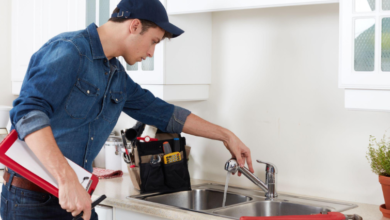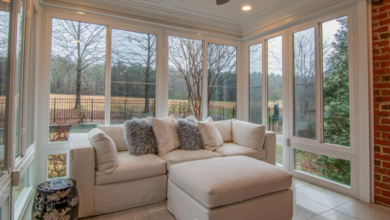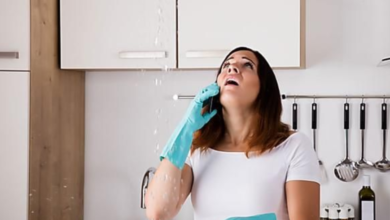The Great Garage Door Recall: Australian Brands That Failed Safety Tests

Did you know that over 300 Australians were hospitalised between 2002 and 2005 due to accidents involving garage doors? What makes this even worse is that most of them were children (and even some pets).
Many of these accidents happen with garage doors that should have been recalled, but nobody told the owners about them. At Doors Direct, we’ve installed and fixed hundreds of garage doors around Australia. Through all this hands-on work, we’ve seen exactly what goes wrong and why.
If you own a garage, you could be at risk right now.
So, here’s what every Australian homeowner and garage installer needs to know to protect their property, safety, and legal rights under consumer protection laws.
First, let’s understand why some garage doors get recalled.
Why Garage Doors Get Recalled
In Australia, the ACCC watches over product safety through the Australian Consumer Law, which protects you as a buyer. So, when garage doors fail safety tests, companies must notify the government within 48 hours and start recalling dangerous products from customers.

Mandatory vs Voluntary Recalls
Now, there are two ways recalls can happen. Voluntary recalls happen when companies find problems themselves and decide to fix them before anyone gets hurt. Mandatory recalls are much more serious. The government forces companies to recall products when they won’t act on their own to stop people from getting injured.
How Door Safety Testing Finds Problems
Safety testing looks for the main things that can seriously hurt or even kill people. This includes:
- Broken Springs: This is your biggest worry. Springs are the metal coils that help lift your heavy door. When they snap, they release more than 90 kilograms of force in a split second.
- Safety Sensors: Testing also checks if the safety sensors work properly. These little devices are supposed to stop your door from crushing someone, but they can fail.
- Weak Door Panels: Finally, inspectors look for weak door panels, bent tracks, or loose bolts that might let your door come crashing down.
What You Should Do If Your Door Is Recalled
If your door has been recalled, stop using it right away.
Next, contact the company because they legally have to give you a free repair, replacement, or your money back. You can also check the ACCC Product Safety website regularly to stay on top of any new recalls that might affect your home.
Let’s now look at a case that shocked the industry and changed how Australians think about garage door safety.
The B&D Case Study: When a Trusted Brand Fails
Even big, trusted Australian brands can get things dangerously wrong. Back in 2002, B&D had to recall thousands of their popular Controll-A-Door 5 garage door openers because they were giving people electric shocks. These were units made between August 1999 and March 2000, sold under names like CAD5, Easylifter, and Firmamatic.

It was a serious but simple problem. The cable you pull to manually open your door during power cuts could touch live electrical parts inside the motor.
Even worse, the cover that was supposed to protect you from getting shocked had gaps that let you touch dangerous components. So, people using these doors were literally risking electrocution every time they tried to operate them manually.
That probably wouldn’t happen again these days (we hope). Australian safety standards are pretty strict about protecting people from electrical dangers, especially when they’re doing everyday things like opening their garage door manually.
When safety inspectors tested B&D’s design, they found it failed this basic protection requirement. The testing showed that a regular person using the door could easily get a dangerous electric shock.
If you’re wondering what these Australian standards are, then great thinking, because that’s exactly what we’re talking about next!
How Australian Standards Protect You from Garage Door Hazards
Australian standards exist to protect you from exactly the kind of dangerous situations we saw with the B&D recall. Once you know these rules, they can help you keep your family safe from garage door problems.
AS/NZS 60335.2.95
This standard covers the most important safety features for garage doors. It requires all garage door openers to have automatic reverse systems that stop the door if something gets in the way. The standard also says smart-controlled doors must have infrared safety sensors. So, check yours right now to see if it meets this requirement.
Other Rules That Keep Your Door Working Properly
Beyond AS/NZS 60335.2.95, AS/NZS 4505 sets the rules for building garage doors that can handle Australia’s weather. The Building Code of Australia also has rules about proper installation, clearances, and mounting, which make sure your door stays safe and won’t fall.
What Safety Testing Checks
Professional testing checks how much pressure it takes for your door to reverse (spoiler: it shouldn’t take much). Inspectors also test the safety sensors by blocking the beams to make sure the door stops right away. During annual inspections, they check the spring tension, cables, and all the moving parts to keep everything working safely.
But what if something does go wrong? Homeowners who aren’t properly protected can face serious financial and legal problems. We’re here to help you understand how to avoid that next.
Safety and Liability Tips to Prevent Garage Door Problems
You now know the rules, but there are still things you should be aware of before problems happen. Let’s go over some important details that can help you stay protected.
Common Risks
The most obvious risk is injury, but property damage can be just as expensive. Your faulty garage door can also crush cars or cause electrical fires.
Here’s what many people don’t realise, though: If your door doesn’t meet safety standards, your insurance company might refuse to pay for damages, leaving you with huge medical bills or repair costs.
Your Installer Has Legal Responsibilities Too
Under Australian consumer protection laws, installers must ensure your door meets current safety standards. They face fines and liability for accidents if they cut corners or ignore safety requirements.
Practical Steps to Protect Yourself
Here are some of our recommended basic preventive measures you can take to protect yourself:
- A yearly professional safety check can help catch problems before they get worse.
- Keep detailed records of maintenance and repairs for insurance protection.
- Signing up for ACCC recall alerts helps you spot warning signs like strange noises or the door not reversing properly.
Protecting Your Family Starts Today
Product safety depends as much on suppliers and installers as it does on you. Our team at Doors Direct follows all the Australian safety standards, and we can come out to check your current door or help you get a safer one if needed. Why not give us a call today?







